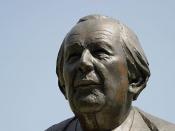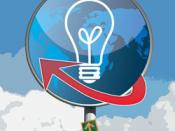Our ability to learn what we need for tomorrow is just as important as what we know today. A real challenge for any learning theory is to actuate known knowledge at the point of application. When knowledge, however, is needed, but not known, the ability to plug into sources to meet the requirements becomes a vital skill. As knowledge continues to grow and evolve, access to what is needed is more important than what the learner currently possesses.
Behaviorism and constructivism are two broad learning theories often utilized in the creation of instructional environments. These theories, however, were developed in a time when learning was not as heavily impacted and influenced through technology as it is today. Over the last twenty years, technology has reorganized how we live, how we communicate, and even how we learn. Learning needs and theories that describe learning principles and processes should be reflective of underlying social environments.
Vaill (1996) emphasizes that "learning must be a way of being - an ongoing set of attitudes and actions by individuals and groups that they employ to try to keep abreast of the surprising, novel, messy, obtrusive, recurring eventsâ¦" (p.42). Hence, the writer has coined the Theory of Becontechnet (Behaviorism and Constructivism with Technology Network). Becontechnet, a learning theory of the new millennium, merges principles of traditional behaviorism and constructivism, into a growing technological age.
Conceptual FrameworkThe Becontechnet Theory is a learning theory for the digital age. This concept of learning is based on the belief that while the theories of behaviorism and constructivism provide an effective view of learning in many environments, they each fall short when learning moves into an informal, networked, technology-enabled arena. The understanding that decisions are based on rapidly altering foundations drives the Becontechnet Theory. New information is continually being acquired.


